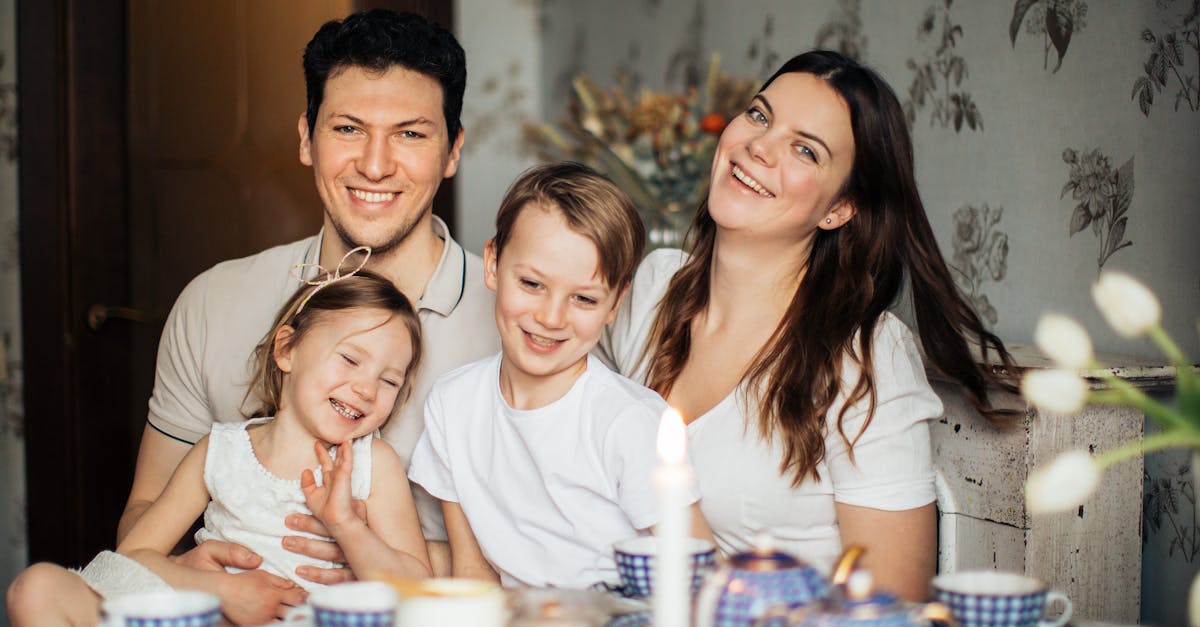Introduction
Loyalty is a crucial aspect of any relationship, be it romantic or platonic. It is the foundation of trust, honesty, and mutual respect. In a world where relationships are becoming increasingly fragile, loyalty has become more important than ever. In this blog post, we will explore the topic of loyalty in relationships and try to answer the age-old question: who is more loyal, men or women?
Loyalty is defined as a strong feeling of support or allegiance. In a relationship, loyalty means being faithful, honest, and committed to your partner. It means standing by their side through thick and thin, and being there for them when they need you the most. Loyalty is not just about being physically faithful, but also emotionally faithful. It means being open and honest with your partner, and not keeping secrets from them.
The importance of loyalty in a relationship cannot be overstated. Without loyalty, a relationship is bound to fail. It is the glue that holds a relationship together, and without it, the relationship will crumble. Loyalty builds trust, which is the foundation of any healthy relationship. When you are loyal to your partner, you are telling them that you value them and that they can count on you.
In this blog post, we will explore the topic of loyalty in relationships and try to answer the age-old question: who is more loyal, men or women? We will look at the different types of loyalty, the misconceptions about men and women's loyalty, and the factors that affect loyalty in both genders. We will also provide tips for building loyalty in a relationship, such as communication, trust, honesty, understanding, and empathy.
In conclusion, loyalty is a crucial aspect of any relationship. It is the foundation of trust, honesty, and mutual respect. In this blog post, we will explore the topic of loyalty in relationships and try to answer the age-old question: who is more loyal, men or women? We hope that this blog post will provide you with valuable insights into the topic of loyalty and help you build stronger, more meaningful relationships.
Table of Content
- Defining Loyalty
- Loyalty in Men
- Loyalty in Women
- Comparison between Men and Women
- Tips for Building Loyalty in a Relationship
- Conclusion
Defining Loyalty
Loyalty is a crucial aspect of any relationship, be it romantic or platonic. It is the foundation of trust, honesty, and commitment. But what exactly is loyalty? Loyalty can be defined as a strong feeling of support, allegiance, and devotion towards someone or something. In a relationship, loyalty means being faithful and committed to your partner, being there for them through thick and thin, and standing by their side no matter what.
There are different types of loyalty, such as emotional loyalty, physical loyalty, and intellectual loyalty. Emotional loyalty refers to the emotional connection and attachment that one feels towards their partner. Physical loyalty, on the other hand, refers to being sexually faithful to your partner. Intellectual loyalty means being loyal to your partner's beliefs, values, and opinions.
Loyalty is essential in a relationship because it builds trust and strengthens the bond between partners. When you are loyal to your partner, you show them that you are committed to the relationship and that you value them. Loyalty also helps to create a sense of security and stability in the relationship, which is crucial for its longevity.
In conclusion, loyalty is a vital aspect of any relationship. It is the foundation of trust, honesty, and commitment. Being loyal to your partner means being faithful, committed, and supportive. It helps to build a strong and lasting bond between partners and creates a sense of security and stability in the relationship.

Loyalty in Men
Loyalty is a crucial aspect of any relationship, and it is often a deciding factor in whether a relationship will last or not. When it comes to loyalty in a relationship, there are many misconceptions about men. Men are often portrayed as being less loyal than women, but is this really true?
Studies and research on men's loyalty in a relationship have shown that men are just as loyal as women. In fact, men are often more loyal than women in certain aspects. For example, men are more likely to stay in a relationship even when they are unhappy, while women are more likely to leave.
Factors that affect men's loyalty in a relationship include trust, communication, and emotional connection. Men need to feel that they can trust their partner and that their partner is committed to the relationship. Communication is also important, as men need to feel that they can talk to their partner about anything. Emotional connection is also crucial, as men need to feel that their partner understands and supports them.
It is important to note that men and women show loyalty in different ways. Men tend to show loyalty through actions, while women tend to show loyalty through emotions. This can lead to misunderstandings and miscommunication in a relationship, but it is important to recognize and appreciate each other's ways of showing loyalty.
In conclusion, men are just as loyal as women in a relationship. Factors that affect men's loyalty include trust, communication, and emotional connection. It is important to recognize and appreciate each other's ways of showing loyalty in a relationship. By building trust, communicating openly, and supporting each other emotionally, both men and women can build strong and lasting relationships based on loyalty.

Loyalty in Women
Loyalty is a crucial aspect of any relationship, and it is often believed that women are more loyal than men. However, this belief is not always true. Loyalty in women is a complex topic that requires a deeper understanding.
There are many misconceptions about women and loyalty. Some people believe that women are naturally more loyal than men, while others think that women are more likely to cheat. However, research shows that women and men are equally likely to cheat in a relationship.
Studies have shown that women value loyalty in a relationship more than men. Women are more likely to stay in a relationship even when they are unhappy because they value the commitment they made to their partner. Women are also more likely to forgive their partner for cheating if they believe that their partner is truly sorry and committed to the relationship.
Factors that affect women's loyalty in a relationship include trust, communication, and emotional connection. Women need to feel emotionally connected to their partner to be loyal. They also need to trust their partner and feel that their partner is committed to the relationship.
It is important to note that loyalty in women is not just about staying faithful. It is also about being supportive, honest, and committed to the relationship. Women who feel valued and appreciated by their partner are more likely to be loyal.
In conclusion, loyalty in women is a complex topic that requires a deeper understanding. Women value loyalty in a relationship and are more likely to stay committed even when they are unhappy. Factors that affect women's loyalty include trust, communication, and emotional connection. It is important to build a strong emotional connection with your partner and show them that you value and appreciate them to build loyalty in a relationship.

Comparison between Men and Women
When it comes to loyalty in a relationship, there are often misconceptions and stereotypes about how men and women differ. However, research has shown that both genders value loyalty equally in a relationship. The difference lies in how they show it.
Men tend to show loyalty through actions rather than words. They may be more likely to stay committed to a relationship even if they are not happy, simply because they made a commitment. However, this does not mean that men are less likely to cheat or be disloyal. Factors such as communication, trust, and emotional connection play a significant role in men's loyalty in a relationship.
On the other hand, women tend to show loyalty through emotional connection and communication. They may be more likely to leave a relationship if they feel emotionally disconnected or if their partner is not meeting their needs. However, this does not mean that women are more likely to cheat or be disloyal. Factors such as trust, honesty, and support also play a significant role in women's loyalty in a relationship.
It is important to note that these differences are not absolute and can vary from person to person. Stereotyping men and women based on their gender can be harmful and lead to misunderstandings in a relationship. Instead, it is important to focus on building trust, communication, and emotional connection in a relationship, regardless of gender.
In conclusion, both men and women value loyalty in a relationship, but may show it differently. Understanding and respecting these differences can lead to a stronger and more fulfilling relationship.

Tips for Building Loyalty in a Relationship
Building loyalty in a relationship is crucial for its success and longevity. It requires effort and commitment from both partners. Here are some tips to help you build loyalty in your relationship:
Communication: Communication is key in any relationship. It is important to communicate openly and honestly with your partner. This means expressing your feelings, thoughts, and concerns in a respectful and non-judgmental way. It also means actively listening to your partner and being receptive to their needs and wants.
Trust: Trust is the foundation of any healthy relationship. It is important to be trustworthy and to trust your partner. This means keeping your promises, being reliable, and being honest. It also means giving your partner the benefit of the doubt and not jumping to conclusions.
Honesty: Honesty is another important aspect of building loyalty in a relationship. It means being truthful with your partner, even when it is difficult. It also means admitting when you are wrong and taking responsibility for your actions.
Understanding and empathy: Understanding and empathy are essential for building loyalty in a relationship. It means putting yourself in your partner's shoes and trying to see things from their perspective. It also means being supportive and compassionate when your partner is going through a difficult time.
Supporting each other's goals: Supporting each other's goals is important for building loyalty in a relationship. It means encouraging your partner to pursue their dreams and aspirations, and being there for them when they need help or support.
In conclusion, building loyalty in a relationship takes time and effort, but it is worth it. By following these tips, you can strengthen your relationship and build a strong foundation of trust, honesty, and understanding. Remember, a loyal and committed relationship is a happy and fulfilling one.

Conclusion
In conclusion, loyalty is an essential aspect of any relationship. It is the foundation of trust, honesty, and commitment. Both men and women can be loyal partners, and it is unfair to generalize one gender as more loyal than the other. Loyalty is influenced by various factors such as upbringing, past experiences, and personal values.
To build loyalty in a relationship, communication is key. Partners should be open and honest with each other, express their feelings, and listen actively. Trust is also crucial, and partners should avoid actions that could break trust, such as lying or cheating. Understanding and empathy are also essential in building loyalty, as partners should be supportive of each other's goals and needs.
In conclusion, building loyalty in a relationship takes effort and commitment from both partners. It requires a willingness to communicate, trust, and support each other. By prioritizing loyalty, partners can create a strong and lasting bond that can withstand any challenges that come their way.




